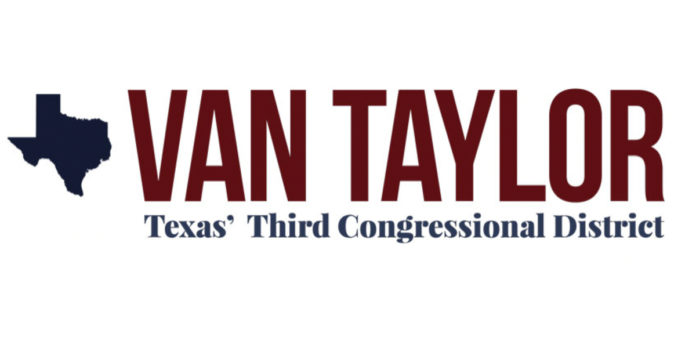Reps. Taylor, Lawson, Barr Introduce Bipartisan Legislation to Prevent Foreclosures and Protect American Jobs
The Helping Open Properties Endeavor (HOPE) Act
WASHINGTON – After hearing from constituents in their Congressional Districts, U.S. Congressmen and members of the House Committee on Financial Services, Van Taylor (R-TX-03), Al Lawson (D-FL-05), and Andy Barr (R-KY-06), today introduced legislation in the House of Representatives to provide economic support to the commercial real estate (CRE) market, especially for businesses with Commercial Mortgage-Backed Securities (CMBS) debt, and the millions of Americans they employ.
H.R. 7809, the Helping Open Properties Endeavor (HOPE) Act works to protect millions of jobs across the nation by preventing Commercial Real Estate (CRE) foreclosures, specifically to borrowers of commercial mortgages.
Author of the legislation, Congressman Van Taylor (TX-03) said, “Millions of jobs and the prosperity of entire communities depend on keeping these properties open. These industries don’t need a bailout, but they do need flexibility and support provided in the HOPE Act to keep their doors open, drive local their local economies, and support families across the country.”
Democrat lead of the legislation, Congressman Al Lawson (FL-05) stated, “COVID-19 is causing many of our industries to experience major financial hits, and commercial real estate is no exception. The Helping Open Properties Endeavor Act establishes a lending facility to help the industry stay afloat — allowing borrowers to seek relief without violating their loan agreements. Without immediate action, we may see unrecoverable losses to these businesses.”
Congressman Andy Barr said (KY-06), “The COVID-19 pandemic and the ensuing government-imposed shutdown of the economy severely threatened the commercial real estate market,” said Congressman Andy Barr (KY-06). “The HOPE Act is a lifeline for commercial borrowers so they can stay in business, avoid foreclosure, keep their employees on staff and emerge intact on the other side of this crisis.”
Specifically, H.R. 7809, the HOPE Act, provides borrowers of commercial mortgages, who have been hit the hardest economically by COVID-19, financial assistance through the HOPE Preferred Equity lending facility. Guaranteed by the Department of the Treasury, financial institutions will originate preferred equity instruments to borrowers.
Text of H.R. 7809 can be found here and a summary of the bill can be found here.
Background
The commercial real estate market encompasses hotel, retail, multi-family housing, industrial, and commercial property, industries which support millions of jobs throughout the United States. For example, 8.3 million jobs throughout the United States, and more than 600,000 in Texas are supported by the hotel industry while the retail industry directly supports 29 million American jobs.
As a result of the COVID-19 pandemic, businesses across the country have experienced revenue declines and cash flow shortages, making it difficult to meet monthly debt obligations and ultimately, threatening the livelihood of their business. While Congress and federal agencies have provided critical assistance to many businesses experiencing financial hardship through programs such as the Paycheck Protection Program and Main Street Lending Programs, these initiatives do not fit the needs of the commercial real estate market.
Businesses with CMBS debt have a particular challenge since their loan covenants are governed by multiparty state law contracts which typically prohibit additional indebtedness. Further, CMBS borrowers have less flexibility to modify their loans since bondholders of CMBS trusts expect principal and interest payments to be maintained.
In June, Congressman Taylor led a letter, signed by 104 Members of Congress from both sides of the aisle, urging the U.S. Secretary of Treasury Steven Mnuchin and Chairman of the Federal Reserve Jerome H. Powell to provide economic support to the commercial real estate (CRE) market.















